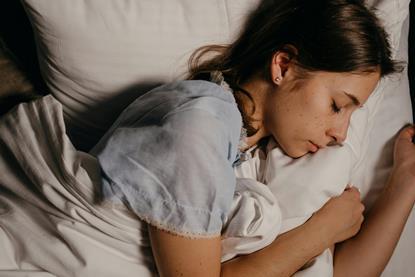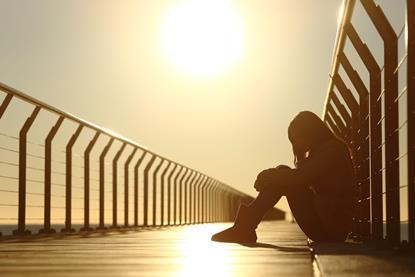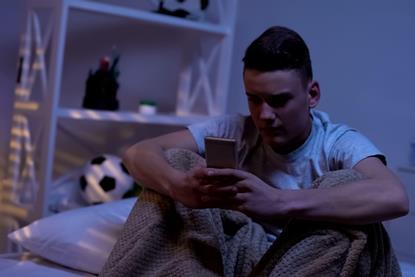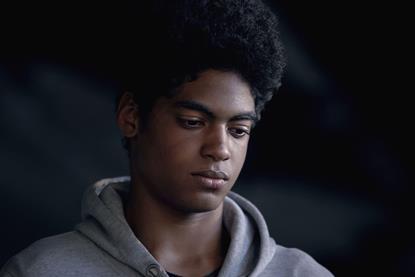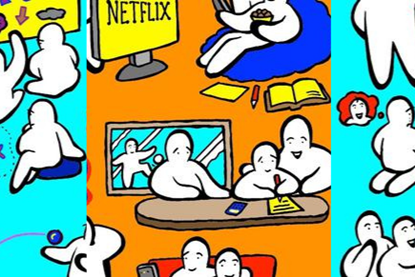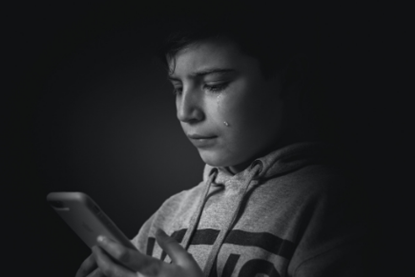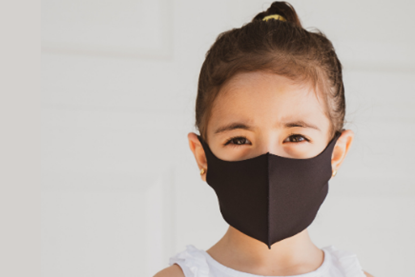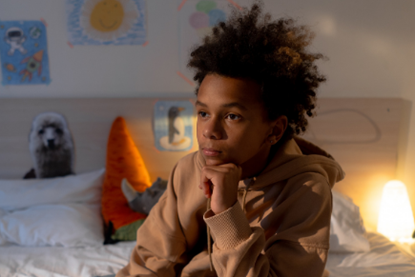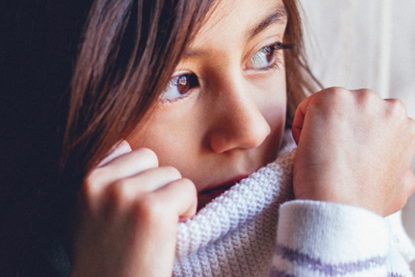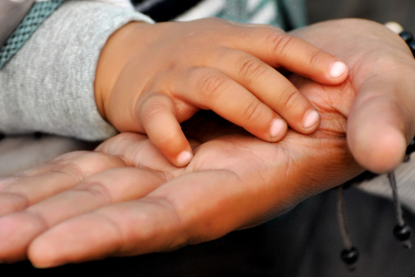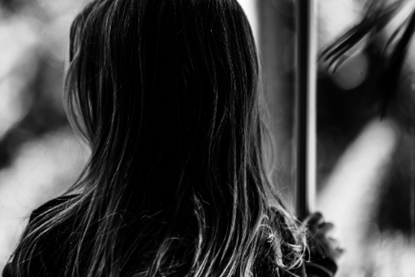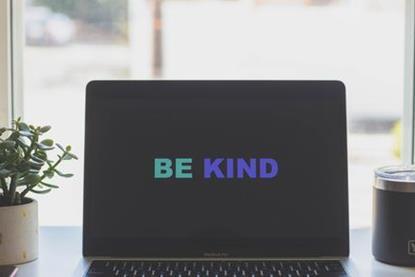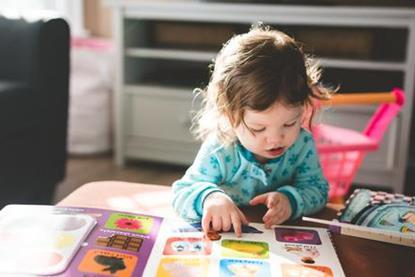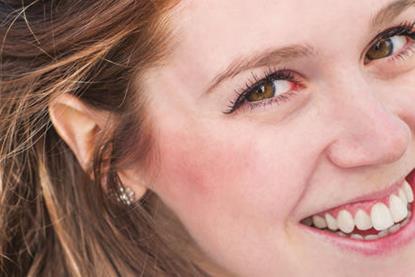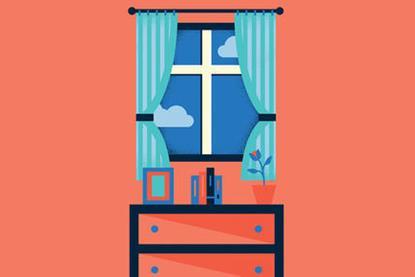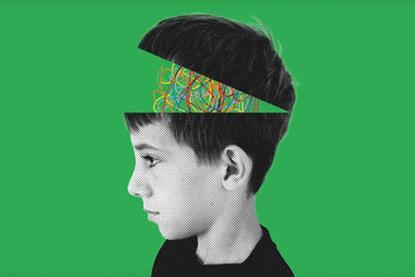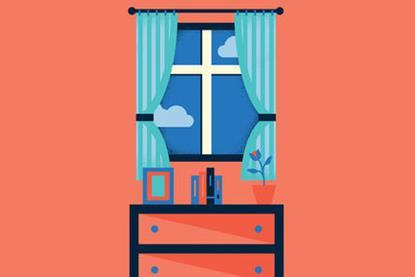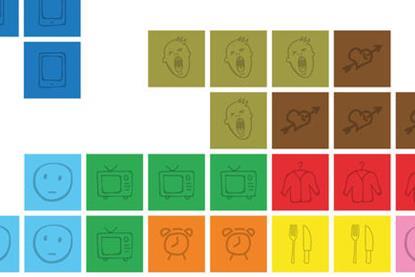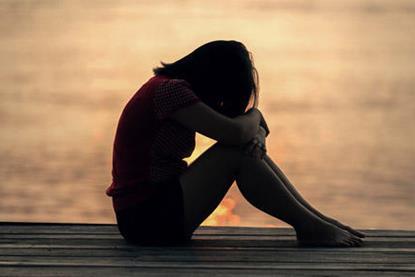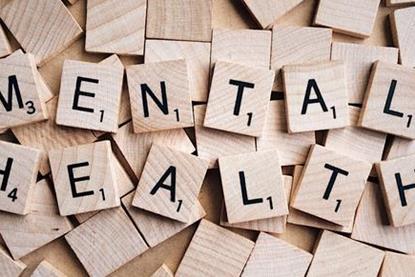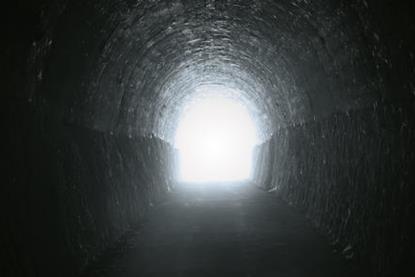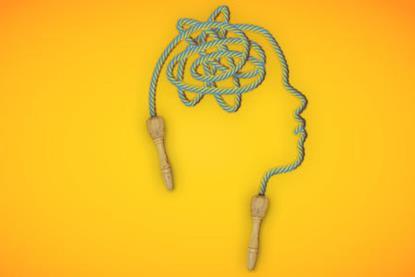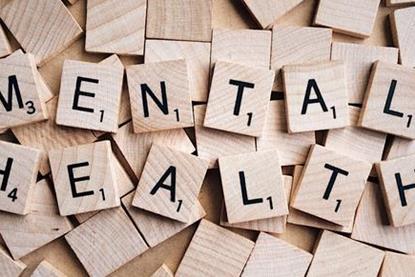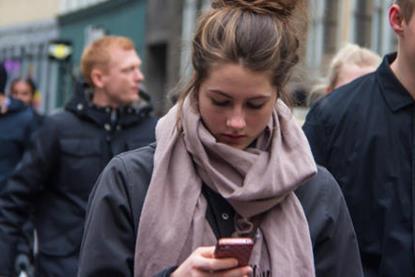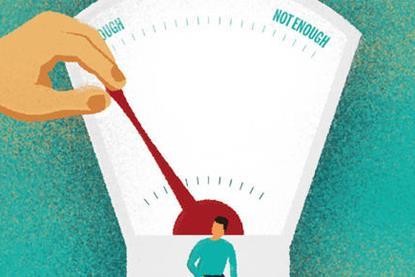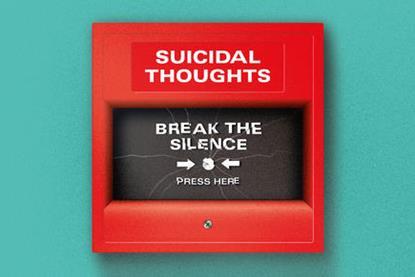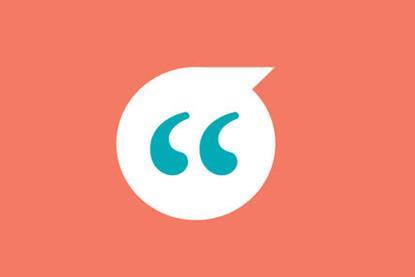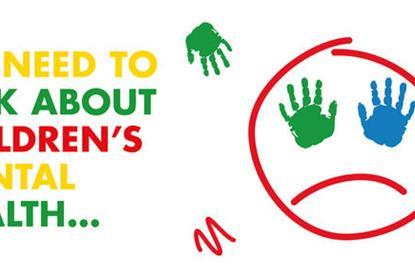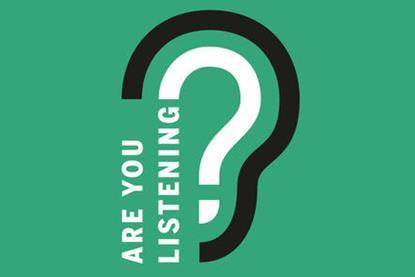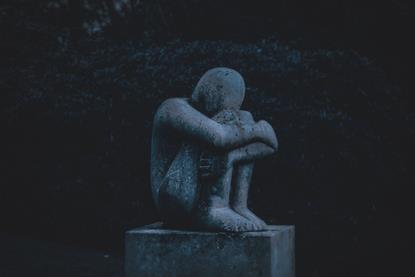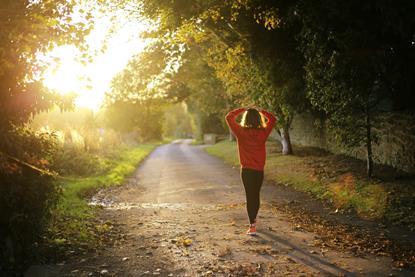- Home
- About
- Topics
- Parenting
- Stories
- Growing faith
 Christian devotions at home for children with additional needs are hard but worth working at
Christian devotions at home for children with additional needs are hard but worth working at Parents are the key to bridging the gap between church and school
Parents are the key to bridging the gap between church and school A tool to help your child ‘take captive every thought’ and walk in freedom with Christ
A tool to help your child ‘take captive every thought’ and walk in freedom with Christ ‘What do you do?’ A Christian mum finds the question triggered more than she expected
‘What do you do?’ A Christian mum finds the question triggered more than she expected
- NexGenPro
- Donate
Mental Health
Finding peace after loss: Trusting God while supporting your child’s grief
Grief is one of the most challenging experiences that we endure in life. Whether it arrives suddenly or evolves over time, nothing fully prepares you for the plethora of emotions that it brings. When my father passed away last year, the grief was overwhelming. Though I continue to hold on to my faith, there are days when the weight of his absence feels unbearable, and the notion of ‘healing’ seems distant.
Sweet dreams - Sleep is foundational for the mental and spiritual health of youth and children
I can remember as a child and teenager trying various tactics to push back my bedtime. It was like going to sleep was a bad thing and creating a battle or managing to get to bed later was somehow a worthwhile victory. As an adult I now enjoy getting a good night’s sleep – but occasionally there is a battle with myself to get off the sofa and make it happen.
Helping your teen navigate Snapchat: A Christian parent’s guide to helping them flourish online
In today’s digital world, social media is a big part of many teens’ lives. Snapchat, with its disappearing messages, fun filters, and real-time updates, is particularly popular among young people. While these features can offer entertainment and connection, they also bring risks that parents need to be aware of. As Christian parents, it can be challenging to help our teens navigate platforms like Snapchat while keeping them safe, grounded in faith, and aware of the potential dangers. This guide will help you find that balance.
It’s not all in the head - Physical activity is really important for the mental and spiritual health of youth and children
In 2024 there were 9.3 million NHS Couch to 5K runs started in the year as people sought to get healthy. I really enjoy physical activity but there are times (especially at the end of a busy day or if it is cold and dark) that dragging myself away from a comfy sofa is quite a challenge. However, one thing I do know is that being active is good for me and I always feel better having chosen to abandon the sofa for exercise.
Our children and young people need the good news not mere happy news
Rachael Newham considers whether we are passing on an emotional prosperity gospel and what a healthier approach might be.
Are smartphones rewiring my kid’s brain?
Robin Barfield wonders if Christian parents are sometimes a little too negative on the impact of smart phones and social media. For an alternative perspective click here.
The Anxious Generation by Jonathan Haidt might have an alarmist title but there is plenty in the book that Christian parents can agree with
Parenting is and has always been a challenge. Teenagers find ways to push boundaries. That’s been the story forever. But in the digital age, the world of smartphones, selfies, nudes, social media and AI, today’s teenagers face challenges that most of us didn’t have when we were growing up.
Childline’s tips on tackling loneliness are helpful. But Christians should go further.
This month Childline revealed that that they ran nearly 5,000 online or telephone counselling sessions with youth and children in 2023-24. There are lots of issues that worry youth and children but, in those sessions, the main concern was loneliness. This isn’t an outlying report. The Office for National Statistics said something similar about the same time period. Loneliness, it seems, is a big problem.
Why the real meaning of Advent matters and how you can encourage participation
Gareth Crispin suggests that you can get preparing for Advent now, and reap the benefits later
‘The number of teens not enjoying life has doubled’: How can Christians respond?
Are the teens in your orbit enjoying life?
Using cartoons to talk to children about their mental health
Talking about difficult feelings with children can be hard - especially while in lockdown when emotions are potentially running higher than normal. This Children’s Mental Health Week, we want to equip you with the resources to talk about ‘feelings’. Here, Ian Long from the Blob Tree introduces their latest resource images for talking about mental wellbeing in isolation.
Instagram and poor mental health
This Children’s Mental Health Week, we want to equip you to help young people and children who may be struggling with their emotional & mental wellbeing. Beth Stout, chief executive of Golddigger Trust, shares what we can be doing to help children and young people in the digital age, with reports of Instagram negatively impact young people’s mental health.
Keeping children and young people mentally healthy during isolation
This Children’s Mental Health Week, we want to equip you to help young people and children who may be struggling with their emotional & mental wellbeing. How can we support our children and young people to maintain and protect their mental health while ensuring we’re looking after our own in isolation?
Fighting anxiety
This week marks the annual Children’s Mental Health Week - designed to raise awareness on how we can best tackle the mental health crisis amongst young minds. With anxiety in children on the rise, psychologist Dr Kate Middleton explores some of the ways we can support the young people we work with.
Children's Mental Health Week: What can we do next?
This Children’s Mental Health Week, we want to equip you to help young people and children who may be struggling with their emotional & mental wellbeing. Joel Harris from mental health charity Kintsugi Hope, commends the efforts of us youth and children’s workers at raising awareness for the issue, but asks: what can we do next? Keep reading to find out his top tips.
Be kind: helping young people deal with difficult emotions
This Children’s Mental Health Week, we want to equip you to help young people and children who may be struggling with their emotional & mental wellbeing. Rachael Newham from mental health charity ThinkTwice explains why kindness is the most important factor in helping children to deal with their mental health.
Mental Health: You can make a difference
Finding a child or youth is battling with their mental health can be the hardest part of youth and children’s work. Surveys tell us this is all too common, NHS chaplain and youth worker, Andrew Bennett helps us believe there are things we can do.
Six things you can do to help your child’s mental health during lockdown
Of course, some children are loving lockdown. No school and no early morning bus journey in the freezing cold. But some are hating it and may be hiding it well. Jenni Osborn offers some ideas to make lockdown that much better for you and your children.
Helping young people with their mental health
This Mental Health Awareness Week, we want to equip you to help your children and young people who may be struggling with their emotional well-being. Andrew Phillips from Premier Christian Radio spoke to Nathan Jones, founder of mental health charity TalkThrough, about how we can be supporting young people through this time, and gives practical advice for engaging in conversations about mental health at home.
Be kind: helping young people deal with difficult emotions
This Mental Health Awareness Week, we want to equip you to help young people and children who may be struggling with their emotional well-being. Here, Rachael Newham from mental health charity ThinkTwice explains why kindness is the most important factor in helping children to deal with their mental health.
Mental Health Awareness Week: what can we do next?
This Mental Health Awareness Week, we want to equip you to help young people and children who may be struggling with their emotional well-being. Here, Joel Harris from mental health charity Kintsugi Hope, commends the efforts of us youth and children’s workers at raising awareness for the issue, but asks: what can we do next? Keep reading to find out his top tips.
Using cartoons to talk to children about their mental health
Talking about difficult feelings with children can be hard - especially while in lockdown when emotions are potentially running higher than normal. This Mental Health Awareness Week, we want to equip you with the resources to talk about ‘feelings’. Here, Ian Long from the Blob Tree introduces their latest resource images for talking about mental wellbeing in isolation.
Keeping children and young people mentally healthy during isolation
As the first week of home schooling comes to an end, parents up and down the country can congratulate themselves for getting to Friday afternoon. Children will be delighted to have the opportunity for family time over the weekend. But, how can we support our children and young people to maintain and protect their mental health while ensuring we’re looking after our own?
Eating Disorders Awareness Week: How we can help young people struggling with eating disorders
Elizabeth McNaught was diagnosed with anorexia at 14 and spent periods of her teenage years in hospital and community care. Now a doctor, Elizabeth has told her story in Life hurts: a doctor’s personal journey through anorexia. She spoke to YCW editor, Ruth Jackson, about looking out for the signs and gives practical ideas for helping young people.
Supporting children struggling with their mental health
Caroline Flack’s tragic suicide has reminded us how important it is to protect our children’s mental health. YCW editor Ruth Jackson spoke to Amy Sixsmith, the diocesan mental and wellbeing youth worker for the Manchester Diocese, about how we can do this.
Fighting anxiety: Children's Mental Health Week
This week marks the annual Children’s Mental Health Week - designed to raise awareness on how we can best tackle the mental health crisis amongst young minds. With anxiety in children on the rise, psychologist Dr Kate Middleton explores some of the ways we can support the young people we work with.
Family mental health
Registered users only: Download as a PDF here.
The adolescent brain
Like toddlers, teenagers often get a bad press when it comes to their behaviour. Sweeping generalisations can be made about the adolescent years, and many unsuspecting teenagers find themselves at the receiving end of unfavourable statements. For parents, the transformation that occurs in their children can have a significant impact. While for some the changes are barely noticeable, others may endure extreme ‘personality transplants’ in their children, and the rollercoaster of emotional adjustment to this new season can be daunting for parents and teenagers alike.
Is Love Island ruining teenagers’ body image?
The Mental Health Foundation have criticised the negative affect of reality TV shows like Love Island. Sue Monkton-Rickett from the Association of Christian Counsellors gives some practical advice for raising young people’s self-esteem
PNDads: New fathers and mental health
Unless we have experienced a mental illness ourselves or seen it first-hand through friends or family members, we can easily think it’s not something that could happen to us; especially for us men, who are taught from a young age not to cry. We can grow up unaware of how to interact with these emotions, suppressing them well into adult life.
It’s OK not to be OK
You’re late for the school run. Your teenage daughter is screaming upstairs because her blazer is dirty. You had washed, dried and ironed it ready for this morning, but she has spilled foundation all over it. She knows it’s not your fault but she’s stressed about the mock exams taking place later in the day, so she lashes out at whoever is listening.
Depression: struggling to breathe
Rachael Newham tried to end her own life as a teenager. She shares her story
A self-harm epidemic?
A new report suggests that nearly a quarter of 14-year-old girls in the UK have self-harmed. Claire Musters investigates why
Male suicide
Scottish indie band Frightened Rabbit probably aren’t on the cultural radar of the children and young people we work with. Kids today have probably never lost an hour to the majestic Midnight Organ Flight album or screamed along to ‘Keep yourself warm’. But in the last month this band has become vitally important to our work with young men.
Are you on the brink of burnout?
This year’s Mental Health Awareness Week has a focus on stress. Two thirds of us experience mental health problems in our lifetime and the main culprit is stress. SueMonckton-Rickett shares a few ways we can avoid burning out in our ministry
Is anxiety destroying our young people?
As the Mental Health Foundation marks out Mental Health Awareness week, Ralph Buckingham explores why anxiety may be the biggest mental health issue our young people face.
The Windrush Scandal is hurting young people’s mental health
HMS Windrush brought many young workers from the Caribbean over to Britain at a time when workers were desperately needed. They were greeted with racism and the recent scandal shows that little appears to have changed. Nathan Dennis from First Class Legacy shares how this is affecting our young people
Duchess of Cambridge launches Mentally Healthy Schools website
Youth worker, Pete English, shares his thoughts on the princess’ new health project.
Self-harm
Self-harm, depleting mental health, anxiety, low emotional resilience… the list goes on. These are terms we have sadly become more and more familiar with over the last decade in relation to our children, youth groups or extended family members. Ruth Ayres explores how we can help
Rise of self-harm in teenage girls
The British Medical Journal has noted a 68 per cent increase in self-harm among 13 to 16-year-old girls over a three-year period.
Cast your cares
Recent research suggests that as many as one in six young people will experience an anxiety condition at some point in their lives. Liz Edge looks at how we can encourage the children and young people in our groups to talk about these issues and seek help where they need it
Sanctuary: creating safe spaces to talk about mental health with young people
On World Mental Health Day Rachael Newham from mental health charity ThinkTwice talks about creating sanctuaries for young people.
Instagram and poor mental health
It was recently reported that Instagram can negatively impact young people’s mental health. Beth Stout, chief executive of Golddigger Trust shares what we can be doing to help children and young people in the digital age.
The Royal Family and mental health
The idea of the British stiff upper lip has been traditionally synonymous with our Royal Family, but the past few months have turned things upside down.
Self-esteem: “I am not enough”
In a world full of pressures and stresses, how do we give children and young people the tools to build up a healthy level of self-esteem? The girls’ brigade’s Claire Rush has some ideas
Mental health at school
Young Minds recently launched their ‘Wise Up’ campaign. This called for teachers, students and parents to sign an open letter to Theresa May urging her to readdress the imbalance in the education system, making pupil wellbeing a priority for all schools.
Rise in self-harm among boys
Many of our boys aren’t finding healthy outlets for their anxieties and stresses, resulting in a variety of other coping strategies including self-harm, according to new research from The Mix, SelfharmUK, and Young Minds.
Helping children with mental health issues
According to ChildLine, there has been a nine per cent increase in the number of children struggling with feelings of unhappiness and low self-esteem in 2014-2015. As many as 100 contacts a week were made in response to situations involving abuse, and mental health related calls totalled 85,000: that’s one every six minutes, and almost a third of all calls received.
Suicidal thoughts: Break the silence
As youth workers, we’re getting much better at talking about mental health issues – we’re familiar with self-harm, eating disorders and depression. But statistics suggest that suicidal thoughts are more common than all of these… and no-one is talking about them. ThinkTwice’s Rachael Newham calls on us to break the silence surrounding this stigma
Mental health funding
Last month’s announcement of an increase in mental health funding is a response to a report published by a taskforce of serviceusers and experts in the field, offering a comprehensive review of the current state of mental health services in the UK. Recent press reports have been rife concerning the challenges facing mental health services, so news that NHS England have committed to investing more than £1bn a year over the next five years into this area is very welcome, as is the call for ‘parity of esteem’ between mental and physical health problems.
Challenges facing young people
Central YMCA have released a report highlighting the challenges faced by British young people (aged 16-25). The Challenge of Being Young in Modern Britain report also looked at some of the biggest barriers to overcoming these challenges.
We need to talk about children’s mental health…
Childhood is an amazing time, full of change and a time to set patterns, beliefs and attitudes that often stay with us right through our adult life. The saying goes that your childhood days are the happiest of your life, but increasingly we’re seeing figures which challenge that.
Are you listening?
So often our youth work is busy – there’s a lot do and even more to say. But do we ever stop and listen to our young people; like really, really listen? Philip Eley gives some practical advice, which you really ought to listen to…
Rise in anxiety among young people
Every week there seem to be new statistics which tell us about a rise in young people struggling with their mental health; whether it be anxiety levels or a rise in experiencing suicidal thoughts. The more statistics that come in, the harder it can be to respond. ChildLine reports that they’ve seen a rise of 35 per cent in counselling sessions with young people about anxiety, with 6,500 counselling sessions on anxiety being given in the last six months.
LGBT young people struggle to find support
A report by LGBT Youth North West has shown that the majority of LGBT young people feel that they don’t receive adequate support from adults in regard to issues surrounding identity and mental health. The survey of 128 LGBT young people (between 15-19 years old) in the North-West of the England also showed that a quarter of them would not feel comfortable talking to any adult about problematic issues.
Young People Receive Mental Health Treatment In Adult Wards
Rising numbers of young people are receiving mental health treatment in adult psychiatric wards.
Rise in self-harm figures
Figures released by the Health and Social Care Information Centre show that reports of self-harm have reached record levels.
Poverty, family breakdown and mental health
In December, Health minister Norman Lamb MP, Sarah Brennan, CEO of Young Minds UK, and other leading experts and policy makers
attended a conference, hosted by urban youth charity XLP and think tank CSJ.Under-11s treated for depression
Thousands of children under the age of eleven have received treatment for depression, stress and anxiety over the last five years. A freedom of information request from the Daily Mirror revealed that, in just two of England’s 60 mental health trusts, 4,391 children aged 10 or younger have received mental health treatment in the last five years.
Holistic Health
If someone asked you how healthy you are, how would you answer? Would you think in terms of your physical body?
Bullying 101
How do you identify a bullied child? How do you minister to them – and to a bully? Author of a new book on adult and child bullying Helena Wilkinson explains.
Anxiety
It’s getting harder to catch your breath, your tongue is sticking to the roof of your mouth and you’re trying desperately to ignore the perspiration trickling between your shoulder blades …
Let's start talking about mental health
Society today simply doesn’t talk enough about mental health. But how can we not talk about it when 62 per cent of girls aged 11 to 21 know a girl or young woman who has experienced a mental health problem? Or when almost half of girls aged 17 to 21 (46 per cent) have needed help with their mental health?
















